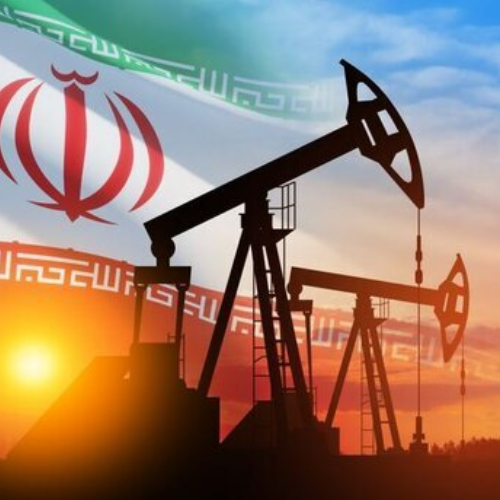In a strong move against illegal oil trade, the United States has announced sanctions against Jugwinder Singh Brar, an Indian national based in the United Arab Emirates (UAE). Alongside Brar, two of his India-based companies—Global Tankers Private Limited and B and P Solutions Private Limited—have also been sanctioned. These sanctions come after Brar and his businesses were found to be involved in helping Iran secretly sell its oil around the world.
The US government says that Brar owns or controls a fleet of nearly 30 oil tankers, many of which operate as part of Iran’s so-called “shadow fleet”—a group of vessels used to dodge international sanctions. These ships are believed to have carried Iranian oil on behalf of the National Iranian Oil Company (NIOC) and even the Iranian military.
According to the US Department of the Treasury, Brar’s companies and vessels engaged in secret oil transfers at sea and used fake documents to hide the oil’s origin. By disguising the oil as non-Iranian, they were able to sell it internationally, bringing in money for Iran despite global restrictions.
Iran Nuclear Network Disrupted As U.S. Sanctions 6 Entities
How the Shadow Operations Worked
Brar runs two UAE-based companies, Prime Tankers LLC and Glory International FZ-LLC, along with his Indian firms. These companies used small and medium-sized oil tankers, often called Handysize tankers, which stick to coastal waters. These vessels are ideal for ship-to-ship (STS) transfers, where one ship secretly passes oil to another in open water, far from port authorities.
These transfers often happened in high-risk waters around Iran, Iraq, the UAE, and the Gulf of Oman. During these operations, ships would turn off their tracking systems or even fake their locations, making it hard for global authorities to know what was happening. After the oil was moved, it would often be mixed with oil from other countries, and fake shipping documents would be created. This made the oil look like it came from legal sources, hiding its true Iranian origin.
One such vessel, the NADIYA, was operated by Glory International and was directly involved in smuggling oil for the Iranian military in 2023. Additionally, Glory International’s tankers Global Beauty and Global Eagle were selected for providing bunkering services—fuel supply to other ships—in Iranian waters. These contracts with the NIOC were reportedly worth millions of dollars.
The US Treasury also linked Brar’s operations to Sa’id al-Jamal, a financial official for the Houthi group in Yemen. Brar reportedly coordinated with al-Jamal’s network to use small vessels instead of large oil tankers, helping to hide Iran’s oil exports in the busy shipping lanes near Khor Al Zubair in Iraq.
Legal Impact and Global Reach
The Office of Foreign Assets Control (OFAC), a part of the US Treasury that handles sanctions, announced that Brar and his companies are now designated entities. This means that any money, property, or business connected to them in the United States, or under the control of any US person or company, is now frozen. No American citizen or business is allowed to deal with them.
Spain Increases Venezuelan Oil Imports as Sanctions Deadline Nears
Also, any other companies where Brar owns at least 50% of the shares are also automatically sanctioned—even if they weren’t named in this announcement. These sanctions can have serious effects not just in the US, but globally, since international banks and shipping firms often avoid working with anyone under US sanctions to protect their own interests.
Brar’s tankers are known to frequently visit Indian ports, especially those near branches of B and P Solutions, the petrochemical sales company he controls. This suggests that some of the Iranian oil may have entered or passed through India’s supply chain as part of this global smuggling operation.
These actions are part of the US government’s ongoing effort to stop Iran from selling oil in secret, using complex networks of ships, brokers, and fake paperwork. Since stricter sanctions began under National Security Presidential Memorandum in 2018, this is the fifth round of US sanctions specifically focused on Iranian oil sales.
With this crackdown, the US aims to disrupt Iran’s ability to earn revenue from its oil industry, which Washington says helps fund destabilizing activities in the Middle East.


